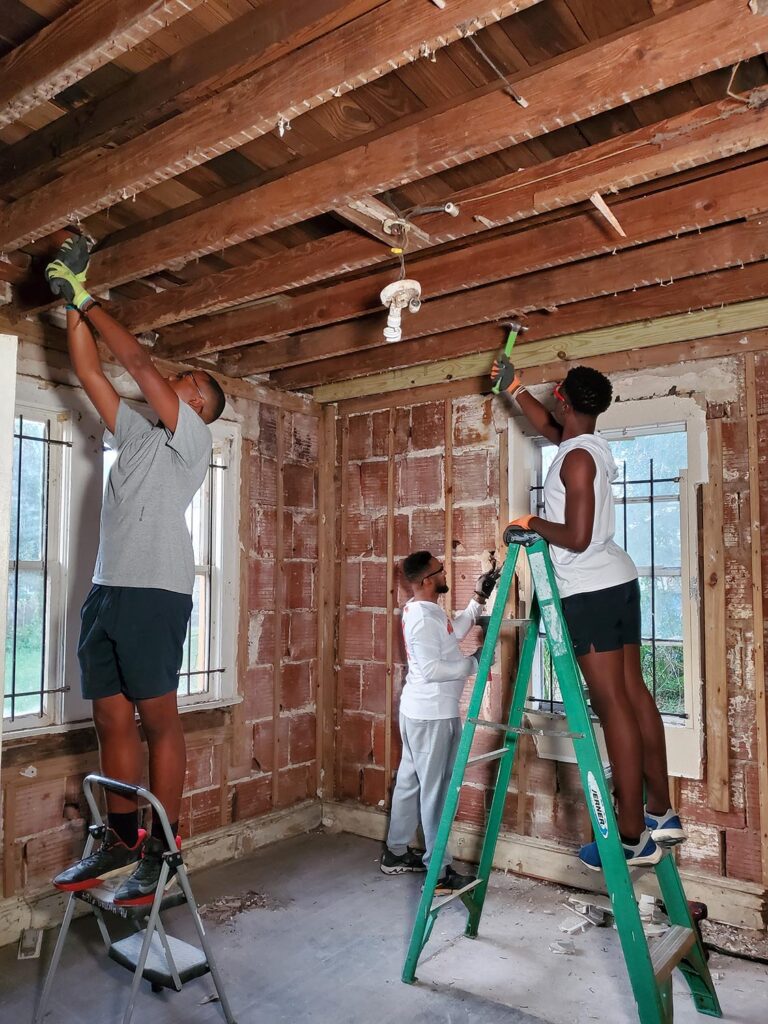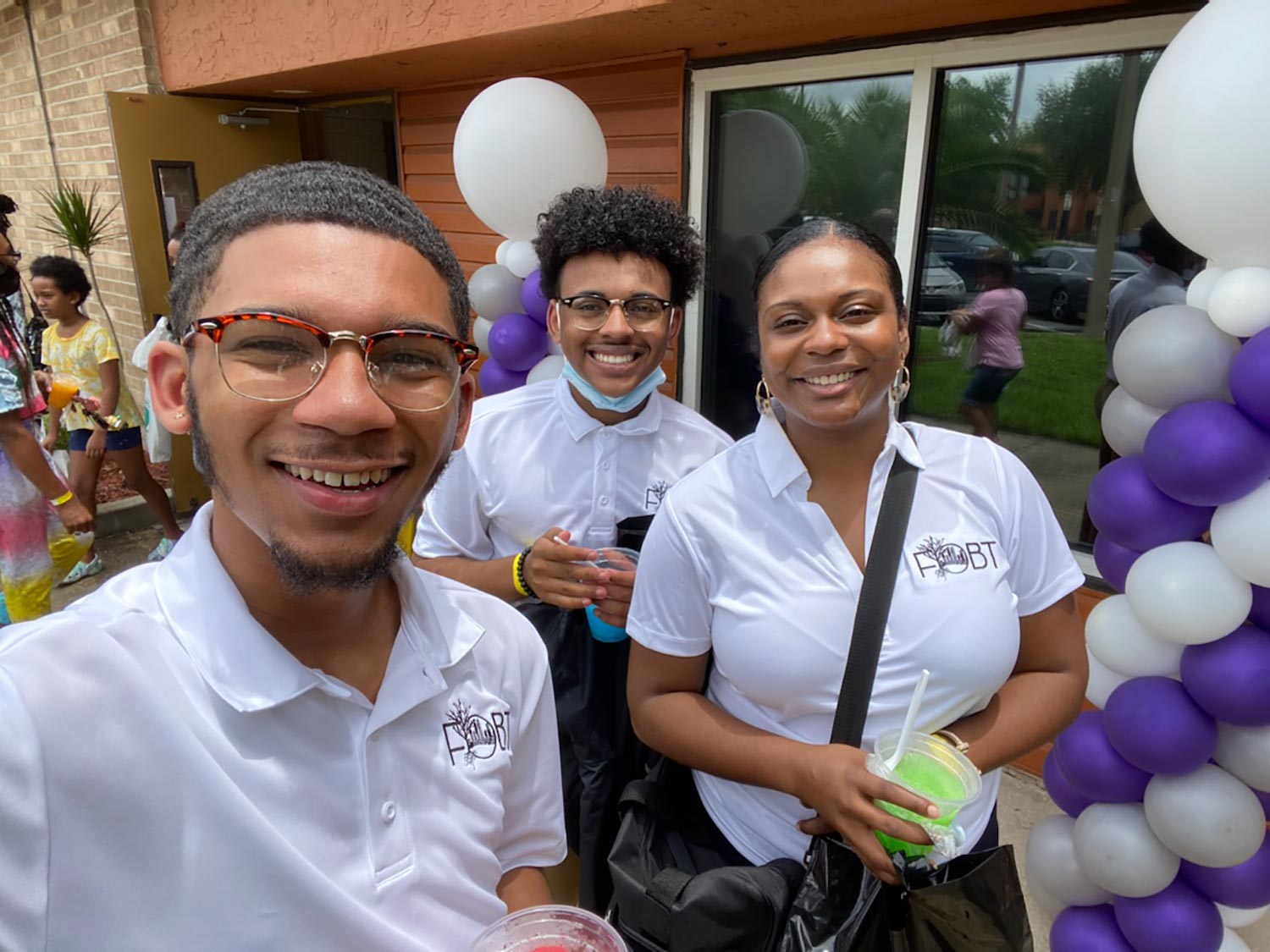‛There’s literally infrastructure sitting right there.’
Fruit of Barren Trees (FOBT) Pipeline is an organization founded to create a pipeline of opportunity within underserved communities in the Jacksonville, Florida area.
Founded in 2020, FOBT Pipeline’s mission is to support neighborhoods in ways that include providing access to job training and access to employment, affordable housing and paths to homeownership, and green and sustainable revitalization of blighted homes and businesses.
Rebecca English Williams, founder and board chair of FOBT Pipeline, said that the goal was to create affordable housing through repair and refurbishment of existing structures, rather than focus on new construction — which she hopes will lead to safe, affordable, and healthy homes in thriving communities.
“We’re really excited,” Williams said. “There’s literally infrastructure sitting right there.”
For Williams, the mission is a deeply personal one.
Growing up, her family all lived on one street. Over time, they watched as the homes and businesses around them were consumed by blight and fell into disrepair, causing health problems due to mold and eventually forcing them to leave.
When she and her siblings attempted to make repairs to their elderly mother’s home, they found themselves unable to get even a relatively small loan for home improvements.

“We couldn’t get a $10,000 loan,” she said. “The repairs cost more than the equity on the house.”
Once neighborhoods have a “blight” label attached them, she said, it becomes a self-perpetuating cycle — as banks often won’t approve home improvement loans for residents to make repairs or upgrades, so conditions continue to deteriorate.
“That experience just convicted me,” Williams said. “Many people in the area have very similar experiences.”
She said that she is excited for the future of FOBT Pipeline, which plans to break ground on a new headquarters next week, and she envisions the organization’s efforts one day serving as a road map for other communities in other states.
“The goal is to [be a pilot program] and prove this works.”
Finding Insurance with NIA
When it came to finding insurance, Williams said that FOBT Pipeline had experienced difficulties securing adequate insurance coverage from other providers — something that she attributes to the broad scope of services that her organization provides.
“It was difficult before we met NIA,” she said. “Being a nonprofit, particularly a nonprofit that has different focus areas, we may seem more risky.”
Williams said that it will be a huge difference having insurance from a carrier that understands the nature of running a nonprofit — particularly the reliance on fundraising.
She added that being able to make premium payments in installments to NIA versus all up-front, as prior insurers required, would give her organization much-needed flexibility.
As an NIA member, Williams said that she appreciates the member resources that other carriers don’t offer, as well as the feeling of connection to the wider nonprofit community.
FOBT Pipeline was connected to NIA through Kevin Cothron, an insurance broker with many clients insured by NIA.
Cothron shared some of the reasons he recommends NIA to nonprofit organizations seeking coverage.
“Since NIA only insures 501(c)(3) nonprofits, I believe their coverage form is the best in the industry for the nonprofit community,” he said, noting NIA’s 34 years of experience. “They provide a wealth of services to their insured members that no other company can match, and [have] a true compassion for nonprofits.”
A Milestone 34 Years in the Making
From its origins in 1989 as a small collection of California nonprofits agreeing to co-operatively self-insure and provide a nonprofit-focused alternative to commercial carriers, NIA has since emerged as the pre-eminent provider of insurance for 501(c)(3) organizations in the United States.
Now serving nonprofits clients across 32 states and the District of Columbia, NIA provides the quality insurance coverage organizations need, at prices that are fair and equitable — enabling them to spend more time, money, and energy serving their communities.
“More than 30 years ago, some wondered why we needed to disrupt the status quo and create an insurance company by and for nonprofits,” says Pamela Davis, NIA’s founder, president, and CEO. “Now we have 25,000 answers for that question, and we are growing!”





